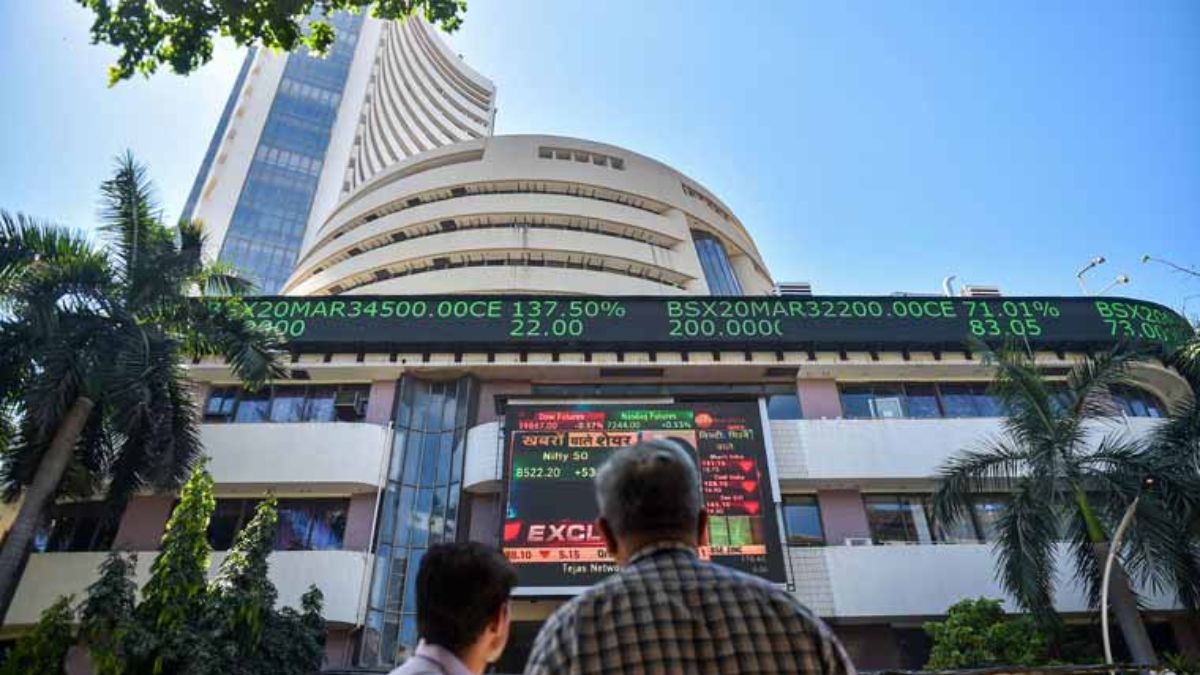After a roller coaster ride last few months, analysts bullish on stocks in FY26
 Representational image | PTI
Representational image | PTI
Is the worst behind for the equity markets? Some fund managers think so and feel equities are likely to outperform other asset classes in the current financial year ending March 2026.
Equity markets have had a roller-coaster ride over the past several months. There was a sharp correction since October 2024, amid massive sell-off by foreign investors worried over heightened geopolitical tensions and how the tariff wars would impact global economy. But, markets, especially large caps, have rebounded off-late with FIIs also beginning to buy in a big way.
The BSE Sensex hit a life high of 85,978.25 on September 27, 2024. However, a sustained period of selling saw it fall below 73,000 levels in March. It has rebounded since and hit a intra-day high of 82,250.42 on Tuesday, May 20, before slipping below 81,500 level.
FPIs sold over Rs 1.16 lakh crore in stocks over January-March, but pumped in Rs 4,223 crore in April and further invested Rs 26,103 crore so far in May, according to NSDL.
In 2025, the BSE Sensex is up 5 per per cent as of closing on May 19. However, the midcap index is still down 0.6 per cent and the small cap index is also lower by around 7 per cent.
What's the outlook?
Ultimately, market movement is dictated in large parts by underlying corporate earnings, other than the developments in the macro economy.
"I believe that stock prices are slaves of profits," said Shailesh Saraf, smallcase manager and founder of Value Stocks.
"There was 8 per cent earnings growth in the December quarter. Already 878 companies have released their annual results till now. From December to March, we are already having a 10 per cent growth in profits. Whenever we see a 10 per cent growth, what we have observed in the last 10 years, we at least get 20 per cent return in the market. So, I still feel Indian markets are quite bullish," he opined.
Prachi Deuskar, co-founder of LotusDew Wealth and Investment Advisors echos similar sentiments, pointing that among the companies that have announced earnings, two-thirds have been positive relative to expectations.
"Overall fourth quarter and FY2025 is turning out to be quite decent and it is driven by strong rural demand, inflation is under control...," said Deuskar.
But, she also points to pockets of weakness; one key cause of concern is corporate investment growth remains sluggish. Therefore, she feels some caution is in order.
On the other hand, a stable macro stands as an advantage for India, she added. Inflation now under control will provide room for RBI to provide monetary policy support for growth if needed, she stated.
"Overall FY26 outlook is quite positive, particularly infrastructure, banking and financial services, fast moving consumer goods, driven by rural demand...," explained Deuskar.
Robin Arya, the founder of GoalFi and also a smallcase manager, remains cautiously optimistic too.
"We still have to find pockets in mid and smallcaps, which are sector specific. From a broad market perspective, we have already seen what's happened from April to May now in terms of index return. So, this year, we are expecting double-digit kind of returns for sure," said Arya.
Capital goods and defence companies will continue to enjoy strong order books, he feels. In pharma, contract development and manufacturing organisations are expected to continue benefiting from the move away from China. He continues to back the new age consumption and premiumisation trends.
"We are cautious on chemicals and export heavy sectors, IT services, for example. There we have to see how global demand comes out," said Arya.
The analysts are extremely positive on the financial services sector.
"We are seeing huge buying by FPIs in the financial sector. So, I am very bullish on the sector for the next one year. After four years you see HDFC Bank, Bajaj Finance breaking out, Bank nifty is at all time high. If HDFC Bank, Bajaj Finance and ICICI Bank breakout we are going to see a huge run in the stock market," Saraf said.
According to him, falling interest rates should helps banks' earnings as they get to borrow at low rates, while the transmission to customers is not immediate.
Business